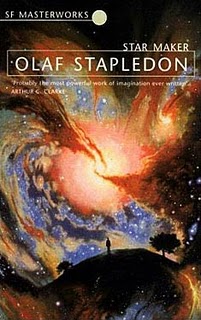 One night when I had tasted bitterness I went out onto the hill. Dark heather checked my feet. Below marched the suburban street lamps. Windows, their curtains drawn, were shut eyes, inwardly watching the lives of dreams. Beyond the sea’s level darkness a lighthouse pulsed. Overhead, obscurity.
One night when I had tasted bitterness I went out onto the hill. Dark heather checked my feet. Below marched the suburban street lamps. Windows, their curtains drawn, were shut eyes, inwardly watching the lives of dreams. Beyond the sea’s level darkness a lighthouse pulsed. Overhead, obscurity.
I distinguished our own house, our islet in the tumultuous and bitter current of the world. There, for a decade and a half, we two, so different in quality, had grown in and into one another, for mutual support and nourishment, in intricate symbiosis. There daily we planned our several undertakings, and recounted the day’s oddities and vexations. There letters piled up to be answered, socks to be darned. There the children were born, those sudden new lives. There, under that roof, our own two lives, recalcitrant sometimes to one another, were all the while thankfully one, one larger, more conscious life than either alone.
All this surely, was good. Yet there was bitterness. And bitterness not only invaded us from the world; it welled up also within our own magic circle. For horror at our futility, at our own unreality, and not only at the world’s delirium, had driven me out on to the hill.
We were always hurrying from one little urgent task to another, but the upshot was insubstantial. Had we, perhaps, misconceived our whole existence? Were we, as it were, living from false premises? And in particular, this partnership of ours, this seemingly so well-based fulcrum for activity in the world, was it after all nothing but a little eddy of complacent and ingrown domesticity, ineffectively whirling on the surface of the great flux, having in itself no depth of being, and no significance? Had we perhaps after all deceived ourselves? Behind those rapt windows did we, like so many others, indeed live only a dream? In a sick world even the hale are sick. And we two, spinning our little life mostly by rote, seldom with clear cognizance, seldom with firm intent, were products of a sick world.
Yet this life of our was not all sheer barren fantasy. Was it not spun from the actual fibres of reality, which we gathered in with all the comings and going through our door, all our traffic with the suburb and the city and with remoter cities, and with the ends of the earth? And were we not spinning together an authentic expression of our own nature? Did not our life issue daily as more or less firm threads of active living, and mesh itself into the growing web, the intricate, ever-proliferating pattern of mankind?
I considered “us” with quiet interest and a kind of amused awe. How could I describe our relationship even to myself without either disparaging it or insulting it with the tawdry decoration of sentimentality? For this our delicate balance of dependence and independence, this coolly critical, but loving mutual contact, was surely a microcosm of true community, and after all, in its simple style an actual and living example of that high goal which the world seeks.
The whole world? The whole universe? Overhead, obscurity unveiled a star. One tremulous arrow of light, projected how many thousands of years ago, now stung my nerves with vision, and my heart with fear. For in such a universe as this what significance could there be in our fortuitous, our frail, our evanescent community?
And yet, in the look of my partner I recognized my destiny. Such was our relationsihip. In my heart I knew that it was true. Even the cold stars, even the whole cosmos, with all its inane immensities could not convince me that this our prized atom of community, imperfect as it was, short-lived as it must be, was not significant.
But could this indescribable union of ours really have any significance at all beyond itself? Did it, for instance prove that the essential nature of all human beings was to love, rather than to hate and fear? Was it evidence that all men and women the world over, though circumstance might prevent them, were at heart capable of supporting a world-wide, love-knit community? And further, did it, being itself a product of the cosmos, prove that love was in some way basic to the cosmos itself? And did it afford, through its own felt intrinsic excellence, some guarantee that we two, it frail supporters, must in some sense have eternal life? Did it, in fact prove that love was God, and God was waiting us in heaven?
No! Our homely, friendly, exasperating, laughter-making, undecorated though most prized community of spirit proved none of these things. It was no guarantee of anything but its own imperfect rightness. It was nothing but a very minute, very bright epitome of one out of the many potentialities of existence. I remembered the swarms of the unseeing stars. I remembered the tumult of hate and fear and bitterness which is man’s world. I remembered, too, our own not infrequent discordancy. And I reminded myself that we should very soon vanish like the flurry that a breeze has made on still water.
Once more there came to me a perception of the strange contrast of the stars and us. The incalculable potency of the cosmos mysteriously enhanced the rightness of our brief spark of community, and of mankind’s brief, uncertain venture. And these in turn quickened the cosmos.
From The Star Maker by Olaf Stapledon
